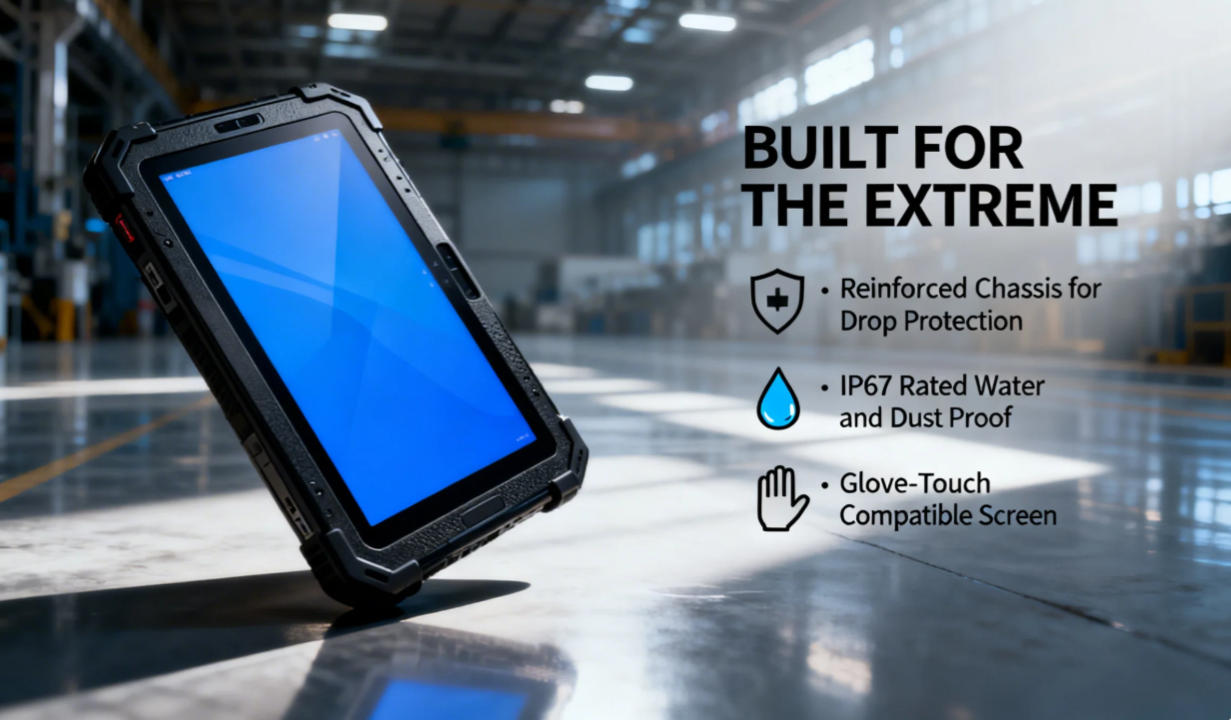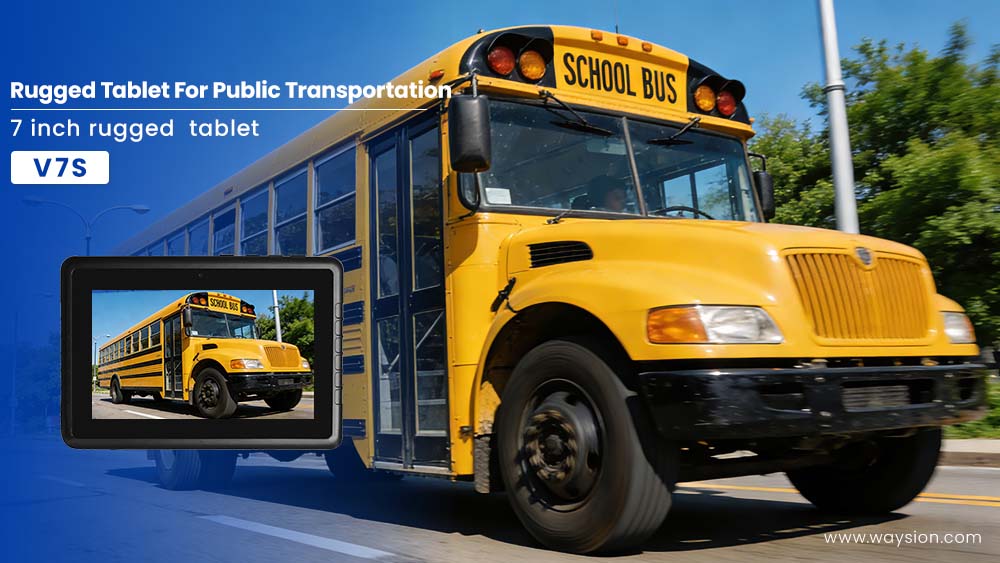In the fast-paced world of logistics and transportation, technology plays a pivotal role in enhancing efficiency and accuracy. One such technological marvel is the Vehicle Mount Computer (VMC), a device designed to withstand the rigors of a moving vehicle while providing robust computing capabilities. This article delves into the world of VMCs, exploring their significance, applications, and how they are transforming the industry.

What is a Vehicle Mount Computer?
A Vehicle Mount Computer, or VMC, is a specialized computer system that is designed to be installed in vehicles, such as forklifts, trucks, and other commercial vehicles. Unlike standard computers, VMCs are built to handle the vibrations and shocks associated with vehicular movement. They are equipped with features like rugged enclosures, high-impact displays, and sealed ports to protect against dust and moisture.
Vehicle Mount Computer Price
Pricing for VMCs can vary widely depending on the features, durability, and brand. Basic models may start at a few hundred dollars, while more advanced systems with additional capabilities can cost thousands. Factors influencing the price include the computer’s processing power, storage capacity, screen size, and the level of ruggedness required for the specific application.
Best Vehicle Mount Computer
When looking for the best VMC, consider factors such as compatibility with your vehicle’s systems, ease of integration with existing software, and the manufacturer’s reputation for quality and support. Leading brands in the VMC market are known for their reliability and innovative features, such as wireless connectivity, GPS integration, and advanced data processing capabilities.
Vehicle Mounted Meaning
The term “vehicle mounted” refers to any device or system that is installed within a vehicle to perform specific functions. This can include anything from entertainment systems to complex computing devices like VMCs. Vehicle-mounted systems are designed to be durable and user-friendly, ensuring they can withstand the harsh conditions of a moving vehicle.
Forklift Computer System
Forklift computer systems are a subset of VMCs specifically tailored for material handling environments. These systems are built to improve the efficiency of warehouse operations by providing real-time data access, inventory management, and task automation. They often feature barcode scanning capabilities, wireless communication, and are designed to be easily mounted on forklifts for operator convenience.
Vehicle Computer
A vehicle computer, in general, refers to any computer system used within a vehicle. This can range from infotainment systems in passenger cars to complex VMCs in commercial vehicles. Vehicle computers are an integral part of modern transportation, providing navigation, communication, and data processing capabilities.
What is Vehicle Mounted Devices?
Vehicle mounted devices are any electronic or computing systems that are installed within a vehicle to perform specific tasks. These can include GPS navigation systems, entertainment systems, and specialized devices like VMCs that are designed for commercial or industrial applications.
What is a Vehicle Mounted Terminal?
A vehicle mounted terminal is a device that serves as an interface between the vehicle’s systems and the operator. It can be part of a VMC and is typically used for tasks such as data entry, communication, and accessing vehicle information systems.
What is the Computer in the Car Called?
The computer in a car is commonly referred to as the infotainment system. It combines information and entertainment features, providing drivers and passengers with navigation, music, and sometimes even internet connectivity.
What is Track Mounted Vehicle?
A track-mounted vehicle is a type of vehicle that uses continuous tracks instead of wheels for mobility. These vehicles are designed to provide superior traction and stability, especially in challenging terrains such as mud, snow, or rocky surfaces. Track-mounted vehicles are commonly used in construction, military operations, and heavy-duty agricultural work. They are known for their ability to distribute weight evenly, reducing ground pressure and increasing mobility over uneven surfaces.
What is Terminal Devices?
Terminal devices refer to the input and output interfaces that allow users to interact with a computer system or network. In the context of vehicles, terminal devices can include touch screens, keypads, buttons, or other hardware that enables the driver or operator to input commands or receive information. These devices are essential for controlling various vehicle functions, accessing data, and ensuring smooth operation.
How Do Vehicle Computers Work?
Vehicle computers, also known as Engine Control Units (ECUs), are sophisticated electronic systems that manage and control various aspects of a vehicle’s operation. They use sensors to collect data on engine performance, fuel consumption, emissions, and other parameters. This data is then processed by the ECU, which adjusts the vehicle’s systems accordingly to optimize performance, efficiency, and safety. Vehicle computers communicate with other onboard systems through a network of electronic signals, ensuring seamless operation and coordination.
Is the Car’s Computer the ECU?
Yes, the car’s computer is commonly referred to as the Engine Control Unit (ECU). The ECU is the central processing unit that controls the engine’s functions and ensures the vehicle operates efficiently and safely. It monitors and adjusts various parameters such as fuel injection, ignition timing, and emission control systems. Modern cars may have multiple ECUs for different systems, such as transmission control, braking, and infotainment systems.
Different Types of Computers in Cars:
- Engine Control Unit (ECU): Manages the engine’s performance and emissions.
- Transmission Control Module (TCM): Controls gear shifts and transmission operation.
- Body Control Module (BCM): Regulates various electrical systems within the car, such as lighting and door locks.
- Instrument Cluster Control Module: Manages the display of information on the dashboard.
- Infotainment Control Unit: Handles audio, navigation, and communication systems.
- Brake Control Module (BCM): Regulates the anti-lock braking system and other brake-related functions.
- Advanced Driver Assistance Systems (ADAS) Control Unit: Manages safety features like adaptive cruise control and lane departure warnings.
Conclusion:
Vehicle Mount Computers are revolutionizing the way we operate within the transportation and logistics sectors. With their rugged design and advanced capabilities, VMCs offer a reliable solution for in-vehicle computing needs. Whether you’re looking for a basic model to support simple tasks or a high-end system for complex operations, understanding the features and requirements of VMCs is crucial to making the right choice for your specific needs.
Latest Content
- School Bus Rugged Tablet Success Case: Transforming Student Transportation with Intelligent Fleet Technology
- Top 10 Rugged Tablet Manufacturers & Supplier Worldwide in 2026 (Updated 2026)
- 7 Inch Rugged Vehicle Tablet: 2026 Complete Guide (Latest Specs, Applications, ROI Data & Implementation Framework)
- Best Rugged Tablets for Field Work in 2026: Top Picks & Buyer’s Guide(Updated 2026)
- Mining Tablet Solutions: The Ultimate Guide to Rugged Devices for Modern Mining Operations
Tags: Terminal Devices, track-mounted vehicle, Vehicle Mount Computer guide, Vehicle Mount Computers, Vehicle Mounted Terminal, VMCs









